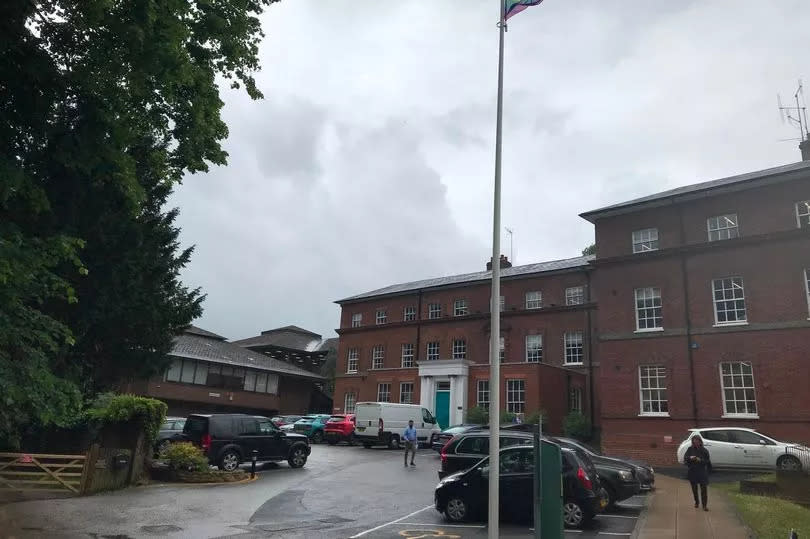Damning details show how Guildford council failed residents

The tie up between Guildford and Waverley Borough Councils focused “almost exclusively on savings to the exclusion of improvement in services and outcomes for the public”. The damning verdict was not from political opponents but its own council-commissioned review into how it failed residents.
The report, carried out by the Society of Local Authority Chief Executives (SOLACE), examined its governance and housing teams – as well as the steps to fix itself. It found that weak governance and poor scrutiny at Guildford Borough Council created a ‘quick fix culture’ that allowed potentially millions of pounds to be defrauded at the expense of vulnerable housing tenants.
It was commissioned to examine how millions of pounds were lost in Guildford Borough Council's housing department in a suspected fraud and how the culture at the council created an environment where budgets were able to skyrocket and pushed the authority towards bankruptcy. It covered an overview of the stages that lead to an arrest, two council staff members being suspended, and five agency workers having their contracts terminated. The fraud investigation has since been escalated to a regional organised crime unit.
READ MORE: The General Election seats to watch as half of Surrey's MPs stand down
READ MORE: Surrey golf club by Gatwick Airport is used as dumping ground for 700 lorry loads of illegal waste
Among the findings, the report also found significant issues with how Guildford and Waverley Borough Councils work together:
Senior managers are working to deliver the priorities of two councils which have different policies, procedures, staff teams and systems of every kind.
The severity of the issues is exacerbated by the lack of clarity about the council’s priorities and the poor quality of service and financial planning systems.
Senior managers are very stretched and cannot operate efficiently.
Leaders at Guildford apologised unreservedly at the time and pointed the Local Democracy Reporting Service to its original press release when asked about the issues raised around the merger when leader of the Council, Julia McShane, said she acknowledged the findings of these reports and accepted all the recommendations in full.
Opposition member, Councillor Bob Hughes however said the failure was easily predicted, could have been avoided, and that residents should have be given a say.
The report said the merger, which covered the top three tiers of management, failed residents because its primary function was to save money rather than what was best for the public or services. It said this left the 16 senior officers over-stretched and needed “additional corporate capacity” to avoid failing.
The report read: “In circumstances where one or other authority was not at risk of failing their Best Value duties, this level of resource would probably be sufficient. However, as this report states clearly, this is not the case in respect of Guildford Borough Council and is, therefore, a significant risk.”
Further down the chain the review found shortcomings in how some services were delivered. Generic back-office teams at the two councils work in “very different” ways which must be “resolved when planning the joining up of services and staffing structures between the two councils". This will take up more senior officer time.
The appetite to continue pushing forward with the partnership's development had “lost momentum” for a number of reasons, including the risk of Guildford Borough Council going bankrupt, and the serious issues in the housing service at Guildford. It read: “These are credible explanations. However, the review team considers that some other issues are of significance. In particular, the council’s ambition for the partnership is too narrow, focusing almost exclusively on savings to the exclusion of improvement in services and outcomes for the public.”
It added: “All senior managers are working to deliver the priorities of two councils which have different policies, procedures, staff teams and systems of every kind. The severity of the issues is exacerbated by the lack of clarity about the council’s priorities and the poor quality of service and financial planning systems.
"Consequently, senior managers are very stretched and cannot operate efficiently. This issue needs to be addressed quickly. If it isn’t, significant risks of various kinds will develop, e.g. delays in the realisation of benefits, frustration with this and difficulties in recruiting and retaining senior staff.”
The report added: “During the SOLACE interviews there was little consistency regarding the staff consultation process before entering into the partnership with Waverley. Some of those interviewed mentioned that they had been consulted prior to the arrangements being put in place, whereas others mentioned that they had not been aware of the arrangements until the press announcements.”
Cllr Hughes (Conservative, Tillingbourne) said: “It's going badly, it’s not saving money and it's virtually impossible for either councillors, or parish councillors, to get hold of officers to get a response. It takes forever and the services are going down. If they had a plan they could have put it to people to know if that's what people want and they could have followed it.
"There was no consultation, no business plan, no idea where the savings would be coming from, if indeed there were any, and because there was no plan they were set up to run the council.
"In theory there is nothing wrong with having combined offices provided they have the back up. I'm not sure what back up the senior officers have got but certainly the system isn’t working. People can't get answers and sometimes these things are sensitive and urgent."
Get more news from SurreyLive straight to your inbox for free here.

 Yahoo News
Yahoo News 
